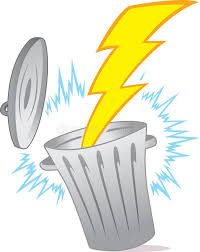
Most small and large businesses are watching their bottom line very closely, but there is one expense that could be reduced in almost every business. This expense is utility and energy costs. EnergyStar, an Environmental Protection Agency program, estimates that the average commercial building wastes an astonishing 30% of the energy it uses. Luckily, Forbes has identified and published 5 energy saving tips for businesses and commercial buildings.
- Start With the Little Things - The energy efficiency industry calls this the low-hanging fruit. Rather than taking on a big energy efficiency project with a lot of upfront costs, the low-hanging fruit allows a business to find energy savings without much investment. These projects are usually updating lighting to LEDs. Businesses can often leverage their local utility to change out their bulbs and either receive replacements for free or receive a rebate to offset the cost. There are also now smart power strips which cycle on and off if there is an employee present. This reduction in plug load will reap the reward of a lower energy bill.
- Check for Old or Outdated Equipment - End of life equipment, especially in HVAC systems, can be a big energy suck for commercial buildings. This equipment is usually not running as it should and is using more energy than a new unit, especially an EnergyStar qualified new unit. Forbes has found that new, EnergyStar qualified HVAC systems can save businesses up to 20% in usage costs. This means that any investment into a new system should see a fairly short payback period and return on investment (ROI)
- Practice Regular Maintenance - In order for equipment to function properly and efficiently it must be regularly serviced. If equipment is not maintained, energy is being wasted and money is being lost. Maintenance does not just include equipment but also the building itself. Leaky pipes, ducts, and windows can cause energy waste, so performing regular building inspections is a good idea.
- Invest in Smart Technology - Smart technologies have made keeping track of a building's energy use much easier. Building and energy management systems can help a business identify inefficiencies in their building or equipment. Smart tech can also help pinpoint problem areas in terms of occupant use. Some rooms or areas in a building may be using too much heat or cooling and occupancy sensors and daylighting sensors can solve for this problem.
- Consider Speaking to an Energy Consultant - Professional assistance will help in carrying out any of the previous tips. Energy consultants can help guide a company or building owner through the process of energy efficiency upgrades and their assistance will likely pay for itself through the money-saving solutions they identify. Auditing a building is a good idea and software-assisted audits can be more accurate than a traditional audit.
Businesses have enough stress about their bottom line, they should not have to worry about losing money on energy waste. Follow the tips listed above and eliminate energy waste and decrease operating expenses.
Read the full Forbes article here.
